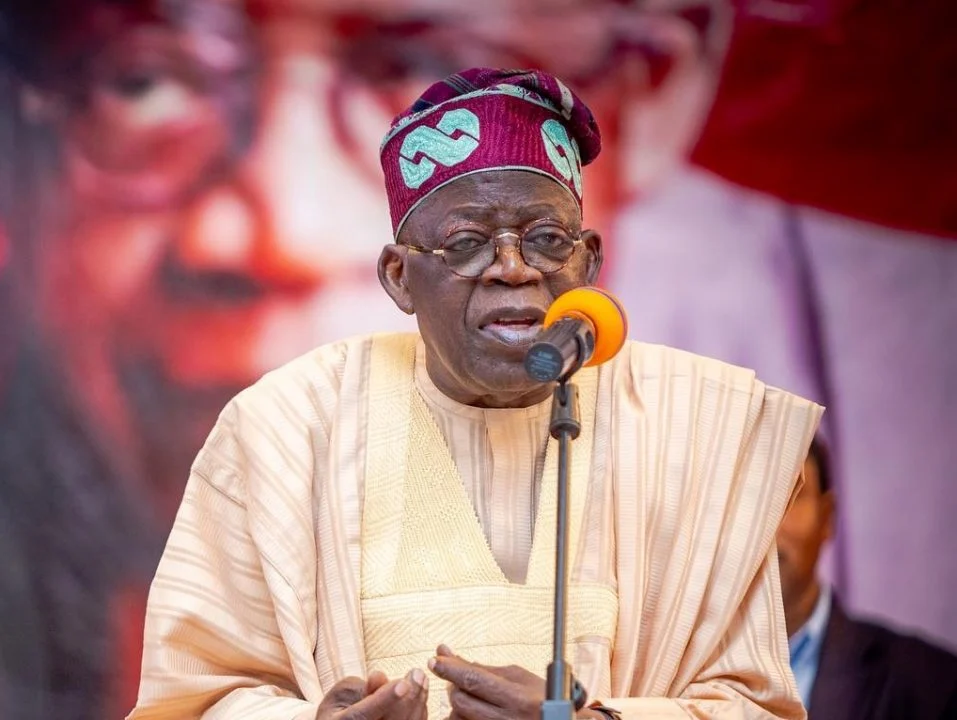Democracy & Governance
Suspension Of Public Officials: A Pattern Of Naming, Shaming, Remove From Office In Nigeria -By Tife Owolabi
President Bola Ahmed Tinubu, and leaders across the country, must prioritize ending this ineffective approach and instead focus on establishing a system that promotes thorough investigations and accountability. By doing so, Nigeria can ensure that suspensions of public officials are not mere acts of shame but meaningful steps towards addressing allegations and upholding justice.

In Nigeria, the pattern of suspending public officials when allegations are made against them without reaching a logical conclusion has become a troubling phenomenon. This repetitive suspension tactic serves no purpose other than to shame the individuals involved, with no concrete actions taken to investigate or address the allegations. It is a disheartening pattern that perpetuates a culture of impunity and undermines the integrity of public office.
One prime example of this pattern is evident in the case of the Economic and Financial Crimes Commission (EFCC). Numerous officials within the EFCC have faced suspension in the past, only for the allegations against them to fade away without any proper investigation or resolution. This lack of accountability not only undermines public trust in the institution but also enables corruption to persist within its ranks. If the purpose of suspension is merely to name, shame, and remove individuals from their positions without any follow-through, then it serves no meaningful purpose.
President Bola Ahmed Tinubu should take note of this concerning trend and ensure that his administration breaks away from this ineffective approach. It is crucial to establish a system that focuses on reaching logical conclusions when allegations are made against public officials. This means conducting thorough investigations, allowing due process to take its course, and holding individuals accountable for their actions if found guilty. Only then can the suspension of public officials serve its intended purpose of maintaining transparency, upholding the rule of law, and deterring misconduct.
Recent suspensions, such as that of Godwin Emefiele, the Governor of the Central Bank of Nigeria (CBN), and AbdulRasheed Bawa, the Chairman of the EFCC, have further highlighted the need for a change in this pattern. Suspending high-ranking officials without promptly addressing the allegations against them creates an atmosphere of uncertainty and undermines the institutions they lead. It is crucial to break away from this cycle and ensure that the suspension of public officials is not just a temporary measure to appease public opinion but rather a means to ensure justice is served.
Additionally, the suspension of the Assistant Director In Charge of the Integrated Personnel and Payroll Information System (IPPIS) in the Office of the Accountant General of the Federation (OAGF) for alleged salary padding reinforces the urgent need for a logical conclusion to these matters. While allegations of misconduct must be taken seriously, it is equally important to ensure that investigations are conducted thoroughly and efficiently. Allowing allegations to linger indefinitely without resolution not only harms the reputation of the individuals involved but also hampers the effectiveness and credibility of the respective institutions.
To break the pattern of suspension without conclusion, Nigeria must prioritize the establishment of a robust and independent investigative framework. This includes empowering relevant agencies with the necessary resources, ensuring their autonomy, and holding them accountable for conducting comprehensive and impartial investigations. By doing so, Nigeria can move towards a system where allegations against public officials are taken seriously, thoroughly investigated, and brought to a logical conclusion. This will help restore public trust, uphold the rule of law, and ultimately create a culture of accountability in the country’s governance.
In conclusion, the current pattern of suspending public officials in Nigeria without reaching logical conclusions is detrimental to the integrity of public office and the fight against corruption. President Bola Ahmed Tinubu, and leaders across the country, must prioritize ending this ineffective approach and instead focus on establishing a system that promotes thorough investigations and accountability. By doing so, Nigeria can ensure that suspensions of public officials are not mere acts of shame but meaningful steps towards addressing allegations and upholding justice.




















